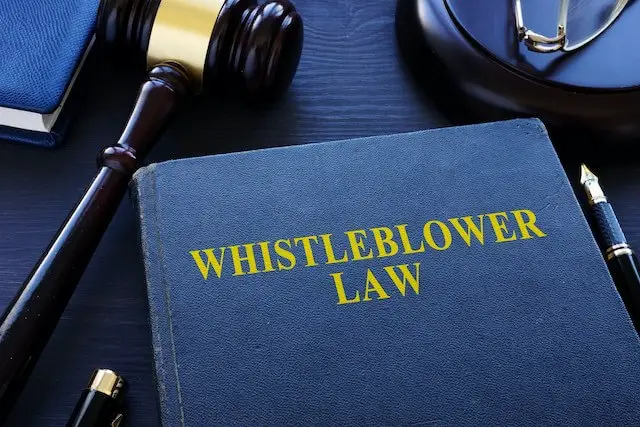There may an expectation by federal employees that if they report fraud, a crime, waste or other improper practices within the federal government that their identities will remain anonymous.
Actually, this is not necessarily the case. No federal law exists that entitles whistleblowers the statutory right to remain anonymous—no matter what their government position, location of employment or the nature of the alleged improper incident.
If a news reporter, government official, member of the public—or even the President of the United States divulges the identity of a whistleblower, it is not a violation of criminal law. This is because Congress has never passed any laws that provided such protection for whistleblowers.
The Intelligence Community Whistleblower Protection Act (ICWPA) of 1998 bans retaliation against federal employees for blowing the whistle on perceived wrongdoing and requires the inspector general to keep confidential the whistleblower’s name, but it does not prohibit anyone from actually identifying a whistleblower. The ICWPA also does not cover members of the Legislative or Judicial branches, being only applicable to covered agencies in the Executive branch.
However, it can be argued that the disclosure of a whistleblower’s name in and of itself could be considered retaliation. For example, exposing an individual’s name could be interpreted as witness retaliation and an act of obstruction if it is related to a congressional investigation, thus constituting it as criminal. But, generally speaking, divulging the name of a whistleblower does not constitute a crime.
Those who out a whistleblower, however, could face other repercussions. A member of Congress who reveals a whistleblower’s identity, for example, could face removal of duties, removal from certain committees or be subject to other legislative sanctions. A member of the public who outs a whistleblower could face a civil lawsuit from the whistleblower. This could occur in a situation where a whistleblower may have threatened to hold anyone who revealed his or her name liable if that disclosure resulted in harm to the whistleblower or his or her family.
That being said, workplace retaliation against a whistleblower following his or her disclosure, does constitute a federal violation. But the actual unmasking of a whistleblower’s identity is not unlawful, unless the individual is a protected intelligence community member. In that case, federal laws provide cover to the whistleblower, and any complaints must be submitted through proper channels.
Regarding retaliation, the U.S. Office of Special Counsel (OSC) is responsible for protecting federal employees from whistleblower retaliation and other unlawful actions. OSC’s primary mission is to safeguard the merit system by protecting federal employees and applicants from prohibited personnel practices, especially reprisal for whistleblowing, and to serve as a safe channel for allegations of wrongdoing.
OSC is an independent federal investigative and prosecutorial agency, with its basic authorities stemming from four federal statutes: the Civil Service Reform Act, the Whistleblower Protection Act, the Hatch Act, and the Uniformed Services Employment & Reemployment Rights Act. Within the 17 agencies of the Intelligence Community, the Director of National Intelligence and the inspectors general organized by the Intelligence Community Inspector General serve a role similar to the Special Counsel for intelligence officers and their support staff.
Takeaways
Federal employees should be aware that no federal law exists that entitles whistleblowers the statutory right to remain anonymous. Individual institutions may protect anonymity as a policy preference, but not by a general bar on unmasking. Federal employees looking to submit a whistleblower complaint, or who have been subjected to prohibited personnel practices or retaliation in response to whistleblowing actions, should consider contacting a federal labor and employment attorney.



